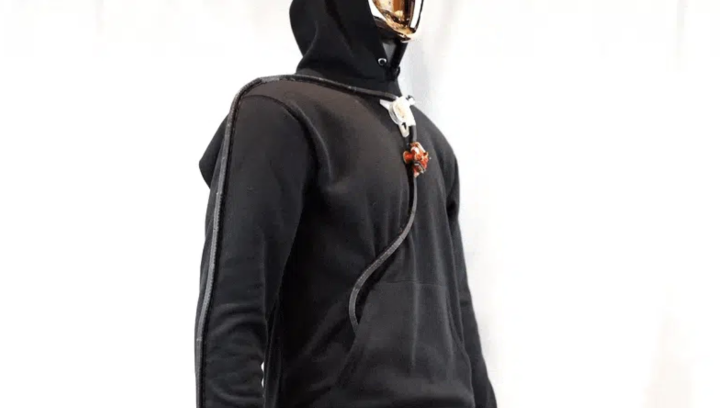A Wearable Robotic Assistant That’s All Over You
Anup Sathya, Jiasheng Li, Tauhidur Rahman, Ge Gao, Huaishu Peng have created an innovative technology that can do wonders for the human body. The researchers from the Small Artifacts Lab (SMART LAB) at the University of Maryland's Department of Computer Science, have been working on a small wearable robot called Calico. Weighing just 18 grams, the robot attaches to a special track sewn on top of your clothing and is ready for work by traversing your garments, which allows it to do all kinds of things, including acting as a stethoscope to listen to your heart and lungs and coaching you through a fitness class.
One of the biggest challenges for Calico is localization: GPS, of course, isn’t precise enough to help you determine where the robot is on your clothing. The researchers solved this problem by embedding neodymium magnets into the clothing track at even intervals, which can be used as markers. With onboard sensors, Calico can detect these magnets, and use them to estimate where the robot is currently located and allowing it to effectively plan a path across your body. It’s a very effective system, as the robot never missed a single marker throughout the development cycle.
The Calico robot can carry a 20-gram payload. Depending on the direction of travel, the robot can achieve speeds between 115 millimeters per second and 227 mm/s. Thanks to the low-power design, the little rover’s 100 milliampere-hour battery will last more than 8 hours in an idle state or 30 minutes with continuous movement. Wireless charging could further extend the operating time of the robot.
When describing their research, the SMART LAB members came up with many applications for their wearable. A microphone and a stethoscope add-on enable the robot to sense vital signs, for example. The robot could travel to a predefined location to listen to your organs, or a doctor could teleoperate it in real time. And because the system already has an accelerometer, it could be used to detect falls.
Click HERE to read the full article from IEEE Spectrum.
About the researchers
Ge Gao (Assistant Professor at the College of Information Studies, UMD)
Jiasheng Li (Ph.D. student at UMD)
Huaishu Peng (Assistant Professor at the Department of Computer Science, UMD)
Tauhidur Rahman (Assistant Professor in the Halıcıoğlu Data Science Institute at the University of California San Diego)
Anup Sathya (Ph.D. student at the University of Chicago)
The Department welcomes comments, suggestions and corrections. Send email to editor [-at-] cs [dot] umd [dot] edu.
